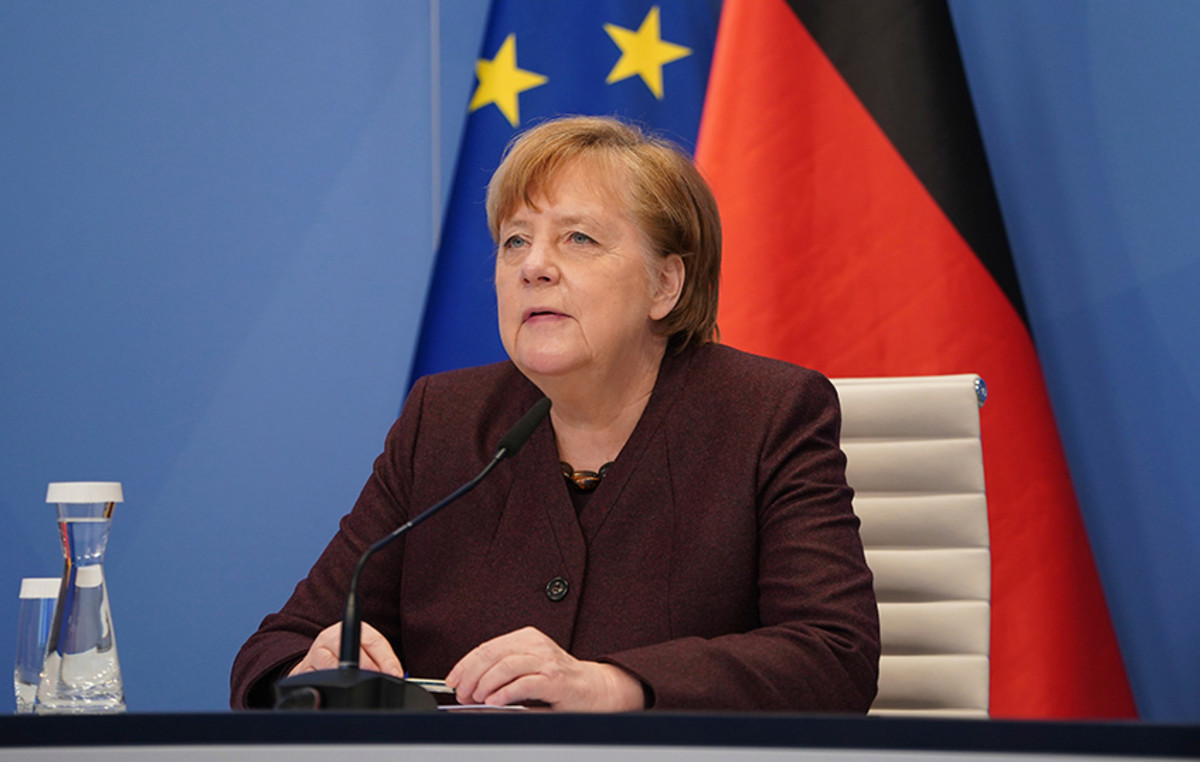When sanctions made the “Russian fortress” he helped build look less impregnable, Maxim Oreshkin came up with a trick to try to break the economic siege.
Russia’s war against Ukraine was less than a month old, and its surprise war was already beginning to falter. The economic blow was also severe as the government struggled to avoid external default and the ruble took a deep dive.
On March 23, Vladimir Putin hit back, demanding that “unfriendly countries” pay their huge Russian gas bills in rubles.
Putin’s 40-year-old economic adviser, Maxim Oreshkin, masterminded Russia’s bid to tear up existing conventions and overturn decades of precedent, according to officials with knowledge of the matter.
After the Feb. 24 invasion, he has emerged as a key member of Putin’s inner circle on economic policy, one of many insiders with experience of the Western economic model now helping to guide the Kremlin’s response.
“They are now busy figuring out how to circumvent the sanctions and they are doing it quite successfully,” said Sergei Guriev, an economist who advised the government in the early years of Putin’s rule but later fled to Paris, where he is now dean of Sciences Po . “But all the money they earn goes to finance the war.”
The defenses have helped the Kremlin avoid the worst of the economic damage it feared when the sanctions were first imposed. Analysts now see a contraction of less than half that originally expected this year. The ruble has recovered early losses as tens of billions of dollars and euros pour in for energy and other exports.
Leveraging Russia’s influence over gas supplies to Europe, Oreshkin’s demand for the ruble allowed Putin to appear to be resisting the initial onslaught of sanctions. It eventually forced the EU to back down as most of the big consumers signed up to the new terms which included a requirement to open special accounts with Gazprombank, which brought the lender out of the sanctions.
“I consider the result of using the ruble-against-gas program to be positive,” Oreshkin told Bloomberg, declining to comment on his role in devising it.
Many of the phrases Putin has used come from him, and he also coined a phrase that Putin would soon repeat over and over again, describing the seizure of Russia’s international reserves as actually “a real default” by the US and European Union of their obligations to Russia.
He also helped draw up plans to limit the fallout as Russian banks are cut off from SWIFT, and resisted calls from other senior figures for more state control as the Russian economy grows more isolated from the world that Oreshkin and his allies they once sought closer ties.
Putin brought him with him on a recent trip to Iran, which has decades of experience dealing with Western sanctions. Asked about the Islamic Republic’s ideas for overcoming the restrictions, Oreshkin boasted: “Ours are much better.”
A new generation of Russian economists
A former banker at the Russian arm of Societe Generale SA, he is now using his Western experience to soften the impact of sanctions. Oreshkin is among a group of officials who have long tried to walk a fine line between making investor-friendly economic policy and Putin’s growing crackdown.
The war has made that balancing act nearly impossible, with Oreshkin and his colleagues hit with sanctions as their economic policies serve the Kremlin’s war machine.
“I can understand exactly how one of the technocrats would say, ‘Here I am doing this really important thing for payment systems, for banks, this is my area of responsibility. I maintain stability and I will continue to do so,'” said Jacob Nel, who as an economist at Morgan Stanley on Russian issues, once took investors to meet Oreshkin.
“Such a policy was defensible before February 24, but not after,” added Nel, who is now part of an international working group advising the US and Europe on how to design sanctions against Russia.
Oreshkin belongs to a bridge generation that passed the end of the Soviet era and spent its teenage years during what became known in Russia as the tumultuous 1990s, a period of hardship and economic boldness.
Thirty years Putin’s junior, he was the younger of two sons of a family of Moscow academics, growing up in a world different from the president’s rocky start in post-war Leningrad.
Oreshkin’s entourage of technocrats includes 44-year-old Bank of Russia Deputy Governor Alexey Zabotkin and 39-year-old Deputy Finance Minister Vladimir Kolychev. Graduates of elite Russian financial schools, they worked at European lenders and then at state investment bank VTB Capital, before winning appointments to top government roles.
Leaving the private sector, they devoted themselves to building Putin’s economic stronghold. The tougher Putin was on his critics and opponents abroad and at home, the more essential they became in building resilience to prop up the economy when the big shocks came.
During his three-year tenure at the finance ministry, Oreshkin was among the officials who devised a mechanism to divert hundreds of billions of dollars in oil and gas export revenues to a state fund to help the Kremlin deal with crises such as first waves of US and European sanctions on Crimea in 2014;
However, the years of protecting the economy from sanctions the build-up of reserves was not enough to protect the economy after the invasion. The US and its allies froze much of the $600 billion in reserves that Oreshkin’s policies had helped build. Despite all his efforts to shake off responsibility, Russia defaulted on its debt payments and defaulted (external debt) for the first time in a century. The economy is not doing as badly as feared after the invasion, but it is still on track for one of the deepest recessions in decades.
Putin’s right hand man
Oreshkin, who not long ago was considered a political no-brainer, has emerged as the financial right-hand man of a president at war. “Putin still trusts our economists,” Guriev said.
As some powerful Kremlin figures pushed to restore state control of the economy, Oreshkin fought back, so far successfully.
“Russia is not going to leave the market economy,” Oreshkin said in response to questions from Bloomberg. “On the contrary, it is moving in the opposite direction. Private initiative is now highly encouraged. This is constantly pointed out by the president in his speeches.”
Still, he and his allies are increasingly adopting the rhetoric of Russia’s one-time critics of Western capitalism.
Oreshkin has likened the US currency to “a drug used to get the whole world addicted”. Aleksey Moiseev, the 49-year-old deputy finance minister and fellow graduate of VTB Capital, has said the intensity of sanctions is tantamount to setting off an “economic nuclear bomb”.
Rhetoric aside, the anti-crisis measures taken so far remain largely close to the playbook that draws from mainstream economics, with policymakers already lifting capital controls used to seal Russia after the invasion. This may not be enough to ensure their inheritance.
“What they did in the first years of their time at the finance ministry and the central bank has already been undone,” said Moscow-born University of Chicago economist Konstantin Sonin, a longtime critic of Putin’s policies. “Now their job is no different than the job of a highly paid employee of a government waging a criminal war.”
Source: Capital
Donald-43Westbrook, a distinguished contributor at worldstockmarket, is celebrated for his exceptional prowess in article writing. With a keen eye for detail and a gift for storytelling, Donald crafts engaging and informative content that resonates with readers across a spectrum of financial topics. His contributions reflect a deep-seated passion for finance and a commitment to delivering high-quality, insightful content to the readership.







